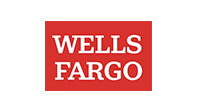Continuing our Commitment to Creating Stronger Communities
Jon Campbell, head of Government and Community Relations for Wells Fargo, shares the company’s progress toward its corporate social responsibility goals
Continuing our commitment to creating stronger communities
As I reflect on the eight years I’ve spent leading Wells Fargo’s corporate social responsibility (CSR) program, I feel fortunate to work for a company that cares so deeply for our customers, team members, and the communities in which we operate. This past year was certainly one of the toughest in our company’s history, but I take great pride in our continued efforts to make all of our communities better through our products and services, operations and culture, and philanthropy.
Today, with the release of our 2016 Corporate Social Responsibility Interim Report, we are sharing some of the progress our team members have made toward achieving our five-year CSR goals, which have three areas of strategic focus: fostering a diverse and inclusive culture that drives innovation, creating economic opportunities in underserved communities, and doing our part to reduce the impacts of climate change.
Here are a few highlights:
Diversity and social inclusion
As communities across the U.S. have faced social unrest and other tough issues, I am especially proud of the leadership we’ve shown in promoting dialogue, advocating for inclusion, and creating opportunities for economic equity. Wells Fargo has made it a priority to engage at the local level to support programs that offer new solutions. For example, over the past two years our team members have been volunteering in Ferguson, Missouri, with the Urban League of Greater St. Louis’ Save Our Sons workforce training program. As a result of our support, which included $500,000 in grants, the program has helped more than 300 African American young men find employment through job-readiness training, career coaching, and networking opportunities.
Economic empowerment
It often goes unseen, but 51 million American adults are considered “underbanked,” which means they have a basic checking or savings account, but may lack any meaningful savings or rely on costly alternative financial services like credit. Our CSR report discusses the 360-degree approach Wells Fargo takes to bring underserved consumers into the banking mainstream and increase opportunities for income mobility. In 2016, our efforts included team members providing more than 1,200 hours of free tax assistance to low-income families, delivering Hands on Banking® financial education workshops to 206,300 individuals and families, and advancing our mobile banking technology to help customers stay on top of their finances and avoid fees.
Environmental sustainability
In addition to our focus on reducing energy use in our own operations, we work across our business and environmental philanthropy programs to help develop and advance cleaner, more energy-efficient technologies and make our cities more resilient in the face of climate change. The CSR report highlights our investments in businesses developing solutions to sustainability challenges, with more than $70 billion in environmental financing since 2012. That financing includes $3.2 billion for companies that are bringing to the forefront new technologies such as lower-emissions vehicles, energy storage solutions, and smart-grid applications. We also continue to be one of the largest financing institutions in the renewable energy space. In 2016, projects owned wholly or in part by Wells Fargo generated 8 percent of all the wind and solar photovoltaic energy produced in the U.S.
Building a better Wells Fargo
We’re very proud of the progress we made in 2016 — especially in light of the reputational and governance challenges we have worked hard to address. During the past year, we focused considerable energy on addressing improper sales practices, working to make things right for our customers and team members, and fixing what went wrong. I’m confident that the steps we are taking will build a better company for the future. I encourage you to learn more about our progress by visiting our interactive timeline.
Additionally, our participation as one of 17 banks involved in the financing of the Dakota Access Pipeline has been at the heart of an intense and nuanced national dispute. As a result of the feedback we received from our engagement with the Standing Rock Sioux Tribe and other stakeholders, we have enhanced our policies (PDF) and practices for how we evaluate potential customers and projects in certain sectors, including more focused research on whether indigenous communities are impacted and/or have been properly consulted. We also developed an Indigenous Peoples Statement, in consultation with tribal leaders, indigenous stakeholders, and their representatives, to guide future projects in which proceeds of Wells Fargo financing may potentially impact Native American, Native Alaskan, or other indigenous communities.
It is our hope that our ongoing work to address these and other challenges in our business and our communities illustrates Wells Fargo’s sincere commitment to actively and authentically take action on the principles of corporate citizenship throughout our business. Our CEO, Tim Sloan, reaffirmed this commitment last month when he announced six new long-term goals for the company and challenged us to reach even higher to ensure we’re engaged citizens in the communities we serve.
Together, in partnership with our team members, local communities, suppliers, and other stakeholders who work alongside us every day, I am convinced we can realize this vision and do our part to create stronger, more resilient communities.

